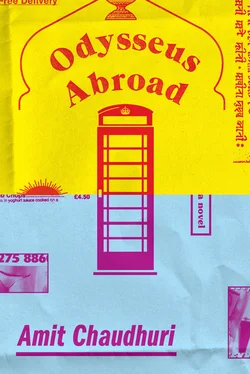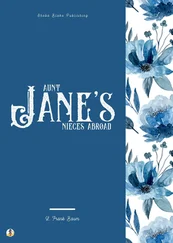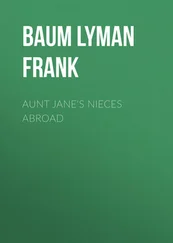—
The English outside the Grafton Arms had taken off their shirts; expanses of pink with ruddy blotches, swigging down lager. If only they’d had more sun! This is what they’d have been like — semi-naked, sedentary, congregated in pairs or threes. They wouldn’t have needed Empire — because their souls would have been full.
Alas, that’s not the way history had turned out. The weather was what it was; Empire had happened; Ananda was here. Sometimes, in November, when the day shrank and grew damp, Ananda daydreamed about what it would have been like if India had been colonised by the Caribbean. He’d have been at a Caribbean university, in shirtsleeves the whole year. The thought consoled him as he made his way to Malet Street.
But that wasn’t how history turned out! — which is why he was in Warren Street rather than St. Kitts or St. Lucia. That’s why the people from St. Kitts and St. Lucia were here too — the little shop on the corner of Whitfield Street, with its euphoric spells of music.
Thank goodness for immigrants! They — tired West Indian women steering prams before them, Caribbean workmen at building sites, wrestling with each other during their breaks like teetering boys, Paki gentlemen in worn black suits, the sudden swarms of dark-skinned children following in the wake of a schoolteacher, even the industrious, practical, seldom-smiling Chinese — they brought some sunshine to a place starved of light. The Gujarati and Pakistani shopkeepers kept the day from sputtering out: their shops open till after nine, well after the natives had retired. Sundays were a graveyard but for the Alis, Patels, Shahs, who (with Thatcher’s collusion) were always open for business.
His hunger had passed, but then been revived by the static of the tandoori platter. He was suddenly ravenous. Near Goodge Street there was an American Style Fried Chicken which, till recently, he was too ingenuous to realise was not Kentucky Fried Chicken. There was McDonald’s of course — for which, he’d heard, oxen were compressed and flattened (like one of those cars pounded to a flat metallic shape in a scrapyard) to a neat patty — eyeballs and all. This horrible diminution surely offended some primordial law? Would someone pay one day?
At the Greek takeaway on Charlotte Street he paused to look at a rotating rump of meat, from which a man scraped shavings at intervals. Also, impaled on skewers were small chunks of — beef or mutton? A small flood of saliva filled his mouth. Could these be progeny of the food mentioned adoringly in the Iliad ? Food was usually more appetising in books, and Homer’s descriptions had galvanised Ananda’s gastric juices — just as, when he was a boy, reading, in Enid Blyton, of picnics flowing with scones, milk, sandwiches, and jam used to fill him with a powerful longing. That surfeit was missing from the life he’d come to know in London, although, if you could afford it, you could eat halibut in a restaurant, or rainbow trout in butter and almonds. The days of rationing — which he’d learnt of from his uncle — were long over. He went in, shyly ordered a skewer of lamb from the moustached Greek. The rump on the spindle had an unpleasant smell. Chewing a dead, resistant piece, he fantasised he was partaking of the food Homer had written of — then rejected the fantasy. It was odd how quickly the meat became cold and lumpy: masticated chunks settled in his stomach, allaying the restive juices. He wondered if the food at the takeaway was below par, or whether Homer had overrated the soldiers’ repasts.
Usually, he descended two levels at Warren Street for the journey, riding escalator after escalator, ignoring the sign saying Victoria Line, reaching deeper into the earth for the Northern. Today he was near Goodge Street. He took the lift down and just missed the train when he reached the platform. There would be another one in two minutes, going to Edgware.
This was a kind of default route. He’d known hardly any other since that first visit in 1973. Belsize Park was inevitable; he and his parents went no further north — Golders Green was unexplored; Hampstead he only ever went to on foot with his uncle. And his uncle made that journey slightly melodramatic, staring portentously at Ananda — when was he ever serious? — and saying, “The Devil lives in the North.” “The North? I thought the Devil lives in Hell,” said Ananda, recalling, at once, his favourite line attributed to Mephistopheles: Why this is hell, nor am I out of it . “The North,” insisted his uncle, “is beloved of the Devil. They say the further North you go, the greater the chances of running into him.” The map opposite the platform depicted one straight line splitting into two, High Barnet dangling from the left, Edgware from the right — and Mill Hill East, not far above High Barnet, appearing to hang from a hair. The picture was imprinted in Ananda’s mind as the essence of an expedition. Not because he lived in Belsize Park, but because he repeatedly went there. In the train, the map of the Northern Line was drawn sideways, becoming a bracelet in two parts, united and linked together at Euston.
The bracelet’s outer border — trains bound for High Barnet or going via King’s Cross — were irrelevant, no, inimical, to him. Stops like King’s Cross, Moorgate, and Angel had to be avoided, despite being on the Northern Line; head for them, and you were lost for half an hour. Other lines — Metropolitan, Central, Piccadilly — existed as rumour, in narratives he had little interest in.
—
Not that he had to go to Belsize Park to see his uncle. They also appointed other locations. They decided this on the phone. Neither had a phone — but this didn’t deter them from calling each other. After the Patels had prised out the coin box, the payphone had become a relic without function and Ananda had to have recourse to a booth on the opposite side of Warren Street, near Tandoor Mahal. From there he called Bombay, speaking to his mother, her clear childish voice reaching him after a delay, like a benediction. When he needed to talk to his uncle, he called the neighbour, Abbas. “One sacund, please,” Abbas said — Punjabis from Pakistan had perfect manners — and sometimes Ananda heard him knock vigorously and proclaim: “Nandy — Nandy! Tumhara nephew hain .” Some expected shambling; then the baritone—“Pupu!” (Ananda’s ignominious pet name.) “Kemon achho he?” His uncle addressed him in a lisping way — like Ananda was an overgrown child who required special handling. He usually sounded amused talking to Ananda — and surprised. He was capable of bickering with Ananda. But they might concur that Marble Arch or Oxford Street was the best meeting place, and experience a bit of satisfaction. This decision shaped the next few hours. What they did then — even if it was the same as what they did every day — would be an accomplice to their future convergence. By the time they hung up, both of them — but particularly Ananda — were fulminating; because his uncle would have complained again about a remark Ananda’s father or mother had made, or something Ananda himself had said, and also offered a long, uncalled-for justification for an opinion he’d expressed last week. To this, Ananda had to reply with “Okay, okay, fine”—his role being to soothe and bring closure — while secreting his third 10 p coin into the slot; when the warning beeps went off again, he’d say, “I’m running out of change, Rangamama, we’ll talk this afternoon”—giving them, before they were cut off, just enough time to rescue a semblance of good humour, his uncle his feeling of anticipation, and say provisional farewells.
—
The tube to Edgware was near-empty. It was that time of day. The suited yuppies would begin to enter the parted doors in a couple of hours, till there was no room to stand. But, given his daytime schedule, Ananda hardly knew rush hour. Tube-travel was spacious; he often found himself headed somewhere in the company of stragglers. “Company” was the wrong word, because they didn’t know each other. And the chances of them seeing each other again were few, if not nil. This fact underlined — without emphasis — the short journey, given the paucity of passengers. During rush hour, the passengers jostled and threatened to merge. Now, the five or six others marooned on seats brought home to Ananda the contingency of their nearness — without the thought surfacing with finality. He was off to see his uncle; they weren’t. If another person or two alighted at Belsize Park, it would be intriguing to see how long their journeys coincided; eventually, the others would fall away, and Ananda’s path to the basement bedsit would be his own. There was a beautiful tall girl in a black dress on the far side, who looked absorbed in everything but where she was. She denied the tube entirely. Her eyes altered direction every few seconds as she raced, very still, with some unfolding preoccupation. A Gujarati couple got on at Euston, at once mercantile and spiritual — old; managing to make their progress a pilgrimage and an enterprise. They didn’t speak; they were receiving and absorbing the train’s motion — but he knew by some unspecified rule of recognition that they were from Gujarat: their arrival here had been presaged by the Oracle, moving him to his “rivers of blood” grandiloquence. The man wore a black jacket and grey trousers, the woman a pale white cotton sari; both had keds on. They were subtly wizened — Gujaratis tended to wizen gracefully, as if in preparation for withdrawal. Yet they were a worldly lot; you could sense that in the couple’s wordless determination. Ananda envied this fearlessness; he wouldn’t have had the gumption to go around in a faded sari and keds in London. Despite his pretences, he cared about what he looked like.
Читать дальше











